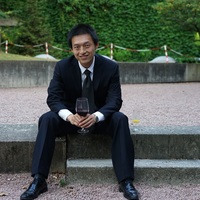
Mingzhe ZHU
Related Authors
Qinghe XIAO
Peking University
wei Han
Northwestern Polytechnical University
Qian Fu
Zhejiang University City College
Wei Feng
China University of Political Science and Law
Thierry Meynard
Sun Yat-Sen University
Sida Liu
The University of Hong Kong
Wang Chen Guang 王晨光
Xidian University
InterestsView All (12)
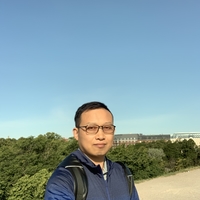




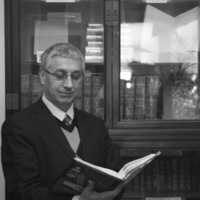
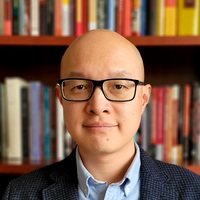
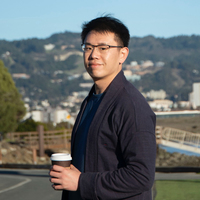
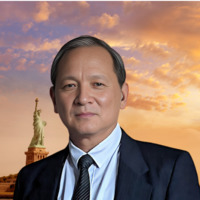
Uploads
Papers by Mingzhe ZHU
19th Century France, Ma demonstrated marvellous clarity in comprehending and selecting between competing theories. The transplant of French doctrine that he made proves that the Chinese young elites in Europe are not merely recipients of fancy stories, but connoisseurs with critical spirit and autonomy.
革外,认可人之社会决定性和法律进步性的新观念也产生于法律社会化现象之中。法国的自然法学家也顺应时势,用这两种新观念改造了自然法。其结果是产生了可变的自然法和法律社会主义两种思潮。主要由天主教徒提出的可变自然法反对此前占主导地位的永恒自然法理论,希望用关心经济上处于弱势地位者福利的主张改变自由主义、个人主义的法律解释,从而减缓社会矛盾,防止革命。法律社会主义则认为法学家应该从社会冲突中发现新的自然法主张,从而改变既有的法律本身,让大众的集体信念成为法律的真正创造者。
19 世纪初的法国共和派和20 世纪初的中国共和主义者都希望通过
摧毁传统家庭模式巩固政权。法国第三共和的缔造者希望改变以
天主教道德观为蓝本的法律制度,从而实现社会的世俗化,以此
作为打击天主教会的战略。但立法本身对父权制家庭的改变并不
积极,学说更进一步限制了改革的幅度,真正推动家庭模式变革
的力量来自于判例。中国的共和主义者则希望贯彻个人主义和性
别平等原则实现国家现代化,也希望通过把个人从家庭中解放塑
造共和国的公民。因为当时中国法学教师和司法官员并未如法国
的同行一样形成对立法者的制约,反而更乐于把立法者宣扬的价
值观贯彻在自己的作品之中。这种差别形成的原因是我国法律人
并不享有独立于政治权力的地位。
between the powerful State and its individual citizens who has no other identity than a unified,universal and secular identity as other fellows. Equality is therefore a principle of denial rather than recognition,
and laicity of exclusion rather than integration. Together they forge a unified and unique national identity that renounces any pretention of religious,ethnic,or linguistic communities and that imposes a particular version of State-Church relationship according to which convictional affairs shall be remained in private sphere and not known in public debates. Also,after years of being disciplined by the State,Christianity in France acquired the secular languages to express. For this reason,Christian symbols are considered as cultural,not religious. Symbols of other religions,on the contrary,are firmly described as religious in public discourses.
19th Century France, Ma demonstrated marvellous clarity in comprehending and selecting between competing theories. The transplant of French doctrine that he made proves that the Chinese young elites in Europe are not merely recipients of fancy stories, but connoisseurs with critical spirit and autonomy.
革外,认可人之社会决定性和法律进步性的新观念也产生于法律社会化现象之中。法国的自然法学家也顺应时势,用这两种新观念改造了自然法。其结果是产生了可变的自然法和法律社会主义两种思潮。主要由天主教徒提出的可变自然法反对此前占主导地位的永恒自然法理论,希望用关心经济上处于弱势地位者福利的主张改变自由主义、个人主义的法律解释,从而减缓社会矛盾,防止革命。法律社会主义则认为法学家应该从社会冲突中发现新的自然法主张,从而改变既有的法律本身,让大众的集体信念成为法律的真正创造者。
19 世纪初的法国共和派和20 世纪初的中国共和主义者都希望通过
摧毁传统家庭模式巩固政权。法国第三共和的缔造者希望改变以
天主教道德观为蓝本的法律制度,从而实现社会的世俗化,以此
作为打击天主教会的战略。但立法本身对父权制家庭的改变并不
积极,学说更进一步限制了改革的幅度,真正推动家庭模式变革
的力量来自于判例。中国的共和主义者则希望贯彻个人主义和性
别平等原则实现国家现代化,也希望通过把个人从家庭中解放塑
造共和国的公民。因为当时中国法学教师和司法官员并未如法国
的同行一样形成对立法者的制约,反而更乐于把立法者宣扬的价
值观贯彻在自己的作品之中。这种差别形成的原因是我国法律人
并不享有独立于政治权力的地位。
between the powerful State and its individual citizens who has no other identity than a unified,universal and secular identity as other fellows. Equality is therefore a principle of denial rather than recognition,
and laicity of exclusion rather than integration. Together they forge a unified and unique national identity that renounces any pretention of religious,ethnic,or linguistic communities and that imposes a particular version of State-Church relationship according to which convictional affairs shall be remained in private sphere and not known in public debates. Also,after years of being disciplined by the State,Christianity in France acquired the secular languages to express. For this reason,Christian symbols are considered as cultural,not religious. Symbols of other religions,on the contrary,are firmly described as religious in public discourses.
L’histoire du droit est très majoritairement pratiquée au sein des Facultés de droit par des juristes qui ont choisi de se consacrer à l’histoire de leur discipline. Ce lien intime distingue non seulement l’histoire du droit de l’histoire des Facultés des Lettres mais également des sciences politiques et de l’histoire des sciences. Elle est ainsi communément pensée comme neutre ou apolitique, son objectif étant d’éclairer le droit par son histoire.
Issu d’un colloque qui s’est tenu à Bordeaux en 2015, cet ouvrage réunit les contributions de jeunes chercheurs français, italiens et chinois ainsi que trois historiens du droit français, états-unien et israélien. Leur thème commun est en l’occurrence l’inscription politique de l’histoire du droit. En confrontant leurs regards de juristes-historiens ou de philosophes à partir d’exemples puisés dans les époques moderne et contemporaine, en interrogeant leur historiographie et en entrant au cœur de l’épistémologie de leur « science », les auteurs réunis ici proposent une série de travaux allant de l’école de Salamanque au 16e siècle au droit public espagnol sous Franco, tout en interrogeant leurs propres méthodes et pratiques de chercheurs. Invitation à la réflexivité, ces études montrent l’ampleur des questionnements d’une jeune recherche dans une discipline qui ne cesse de se renouveler.
ABSTRACT
The history of law is overwhelmingly practiced within Law faculties by lawyers who have chosen to devote themselves to the history of their discipline. This intimate connection not only distinguishes the history of law from the history of the Letters faculties, but also from the history of political science and the history of science. It is thus commonly thought of as neutral or apolitical, its objective being to enlighten the law through its history.
Coming out of a conference held in Bordeaux in 2015, this book brings together the contributions of young French, Italian and Chinese researchers as well as three historians of French, American and Israeli law. Their common theme is the political inscription of the history of law. By confronting their views as historian-legalists or philosophers based on examples drawn from modern and contemporary times, by questioning their historiography and by entering into the heart of the epistemology of their "science", the authors gathered here propose a series of works ranging from the Salamanca School in the 16th century to Spanish public law under Franco, while questioning their own methods and practices as researchers. An invitation to reflexivity, these studies show the extent of the questions raised by a young researcher in a discipline that is constantly renewing itself.
Under the direction of Professor Nader HAKIM, with contributions from Professors David M. RABBAN, Assaf LIKHOVSKI, and Alfonso ALIBRANDI, Ludovica Gabriella BOSICA, Marine BOHAR, Kevin BREMOND, Dario Di CECCA, Jean-Philippe FERREIRA, Elisabetta FIOCCHI MALASPINA, Jean CHARRIAUD, Giulia Maria LABRIOLA, Anna NEYRAT, Antoine SENE, Alessia Maria Di STEFANO, Stefano VENERONI, Mingzhe ZHU.